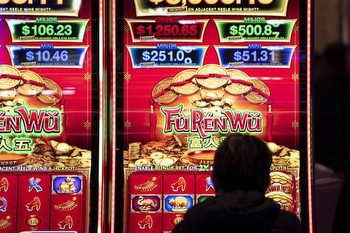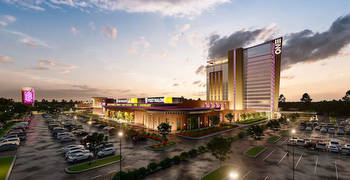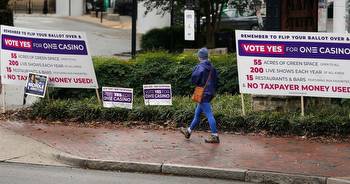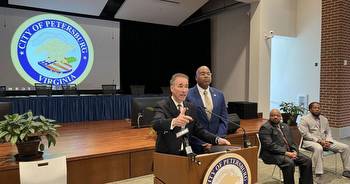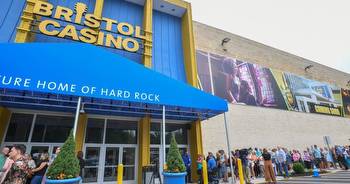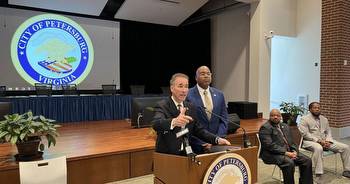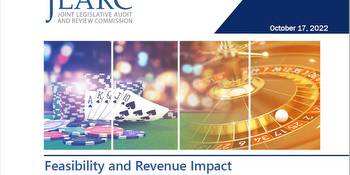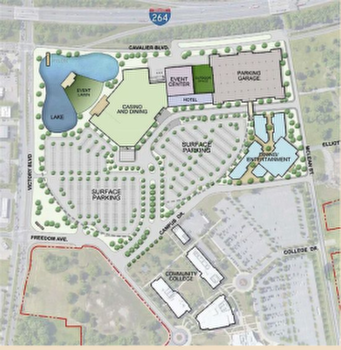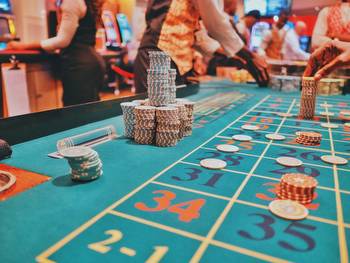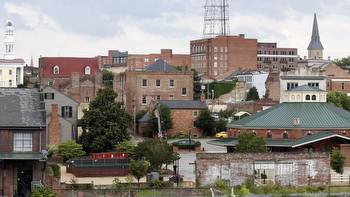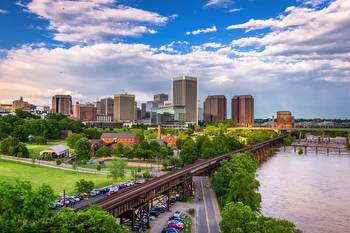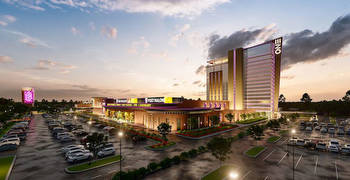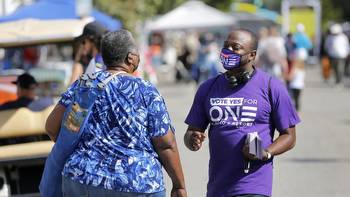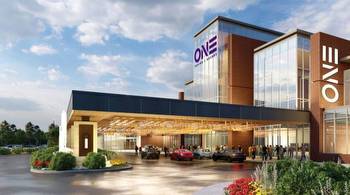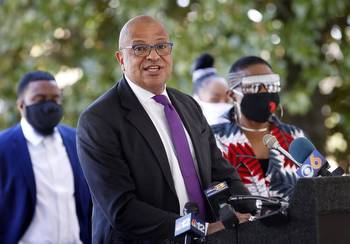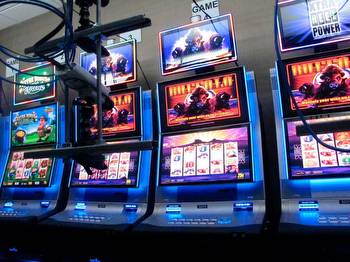Richmond casino defeat is good news for Hampton Roads, but overall economic impact still unclear, economist says

When it comes to casinos, Richmond’s loss is Hampton Roads’ gain.
Norfolk and Portsmouth’s planned casinos could scoop up gamblers from Central Virginia after voters there defeated a casino development in a referendum vote Tuesday, according to a local economist.
But the casinos could leech tourism dollars from other area attractions, and their long-term economic impact is still in question, according to a recent study.
“At the end of the day, the short story is the defeat of the Richmond casino referendum boosts the prospects of the casinos incrementally,” said Bob McNab, an Old Dominion University economist.
Richmond residents voted against opening a casino 51.2% to 48.8% with all but one precinct reporting as of Friday, according to Virginia Department of Elections. The $565 million project would have constructed a 100,000-square-foot casino and a 250-room hotel in South Richmond.
Conventional wisdom says most casino customers travel from locations a two-hour car ride away at most, McNab said. So, the Richmond casino could have attracted visitors from all over the Virginia Peninsula and South Hampton Roads.
Conversely, Hampton Roads now has a chance to attract Richmond gamblers who will now be faced with either traveling here or to Maryland to gamble, he said.
Norfolk and Portsmouth, along with Danville and Bristol, are the four remaining cities licensed by the Virginia General Assembly to build casinos. Norfolk and Portsmouth citizens approved their projects in 2020 ballot referendums.
Economic questions remain
McNab is still skeptical about the total economic impact of the casinos. A study by ODU’s Dragas Center for Economic Analysis and Policy estimated the casinos could contribute between $100 million and $400 million annually to the regional gross domestic product — only about 0.1-0.3% of the total GDP.
The economic analysis hinges on how much money the casinos will drain from other regional tourism attractions, restaurants, and hotels. In a process McNab calls displacement, a couple from the Peninsula might spend the night gambling and going to a casino restaurant rather than going to the Virginia Beach aquarium and eating at the Oceanfront.
The study predicts displacement could cripple the casino’s economic output. For example, if the two casinos contribute about $462 million annually to the Hampton Roads gross domestic product, then 50% displacement spending from other Hampton Roads businesses results in a lessened net gain of $231 million, according to the ODU report. Those figures are based on the two casinos bringing in $500 million in annual gambling revenue, although projections vary.
Jay Smith, spokesperson for the Norfolk casino developers, countered the concerns by saying in an email that the development might bring out people who aren’t spending money at movies, sports or other Hampton Roads attractions. Additionally, he said developers believe Hampton Roads residents and visitors may vacation at the casino instead of traveling elsewhere.
“That’s spending money in Norfolk rather than in some other city,” Smith said.
Delceno Miles, spokesperson for the Portsmouth casino developers, touted the development’s job creation and tax revenue potential in an emailed statement. She said the casino “will generate approximately 1,400 construction jobs, 1,300 permanent jobs and $16 million annually in sustainable tax revenue for the city of Portsmouth.”
Gambling industry becomes crowded
The other open question, McNab said, is whether the casinos will be able to sustain annual revenue in an increasingly crowded and diverse gambling industry.
In places such as Detroit and Maryland, he said it’s often difficult for casinos to sustain and grow revenue after the initial honeymoon period of 3-5 five years. In Detroit, casino revenue declined from a high of $1.65 billion in 2006 to a pre-pandemic low of $1.41 billion in 2019 — a nearly 15% decline, according to the Michigan Gaming Control Board.
The casinos also will compete against the novelty and convenience of sitting on your couch and placing real-time sports bets. Virginia legalized sports betting in April 2020, and since then, big players like FanDuel, Draft Kings and WynnBET have flooded the airwaves, billboards and the internet with advertising blitzes.
In September, Virginia gamblers wagered around $294 million on bets, a 61% increase from August, according to Virginia Lottery. In just eight months, Virginians have bet close to $2 billion total.
“The whole industry is looking down the pipe of this competition from mobile sportsbooks and mobile betting that we haven’t seen before in the gambling industry, but we have seen in the retail industry,” McNab said.
The question is, he said, whether casinos will face the same losses that malls and other stores have faced with the rise of Amazon and other e-commerce sites.







